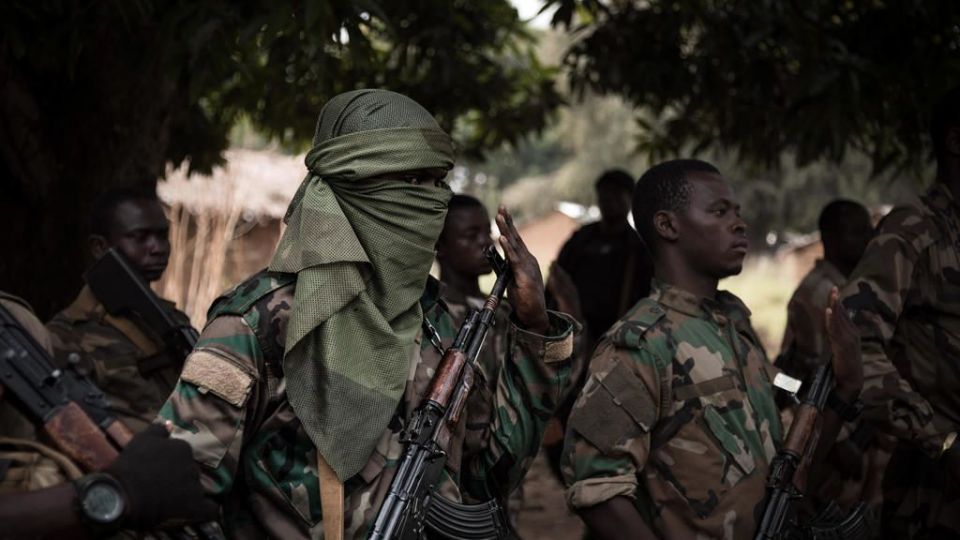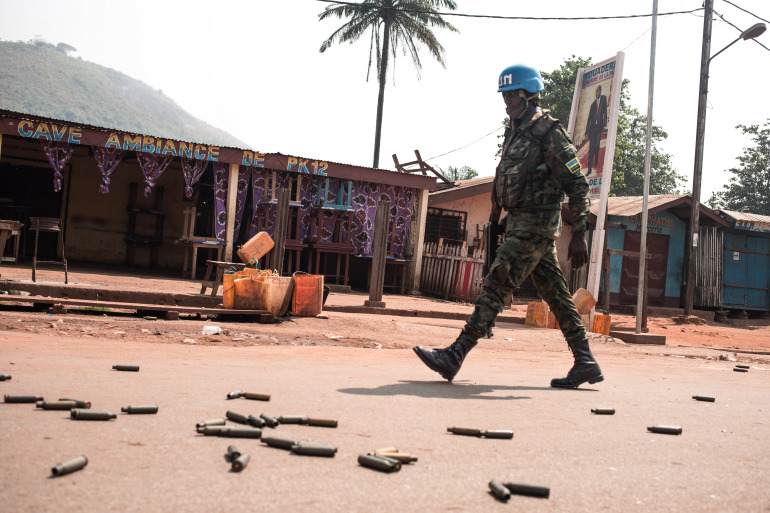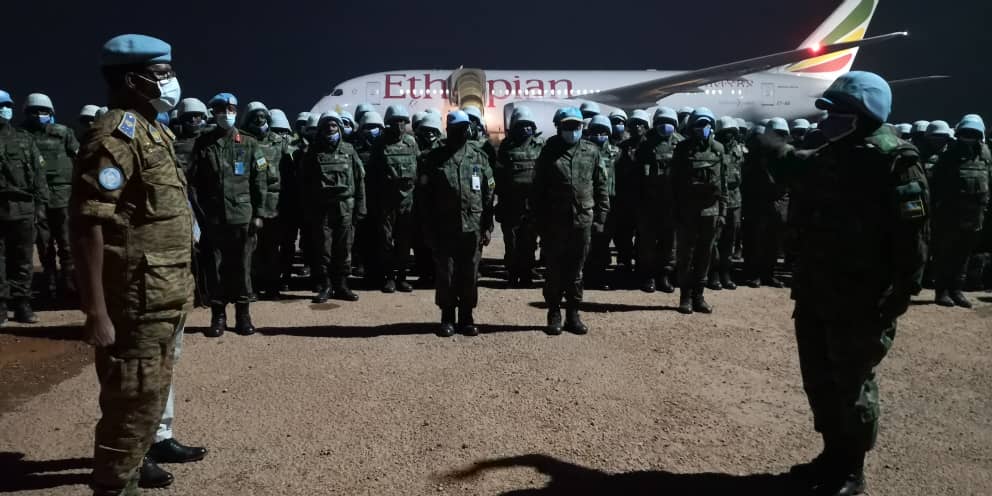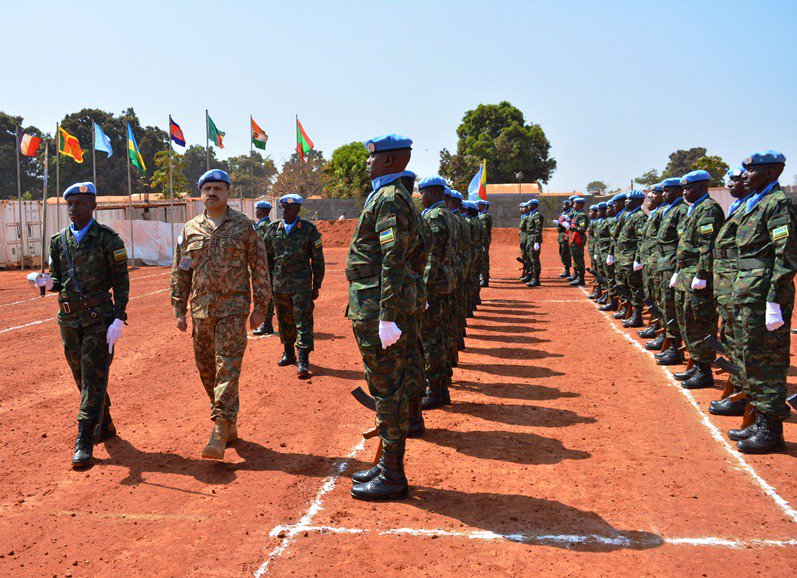International
Rebels in Central African Republic supplied with increasingly sophisticated weapons, mercenaries

In
a statement on Friday, the International Conference on the Great Lakes Region
(ICGLR), a regional body of 12 member states, noted that rebel forces in the
Central African Republic (CAR) are being supplied with increasingly
sophisticated weapons and other means to carry out their actions against the
populations and legitimate authorities of the country.
Angolan
President João Manuel Gonçalves Lourenço who is the Acting President of the
International Conference on the Great Lakes Region (ICGLR) on Friday, January
29, convened a mini Summit on the political and security situation in the
Central African Republic, in Luanda, Angola.
Other
Presidents who attended were Denis Sassou-Nguesso, of the Republic of the
Congo, Marshall Idriss Déby Itno of Chad, and Faustin Archange Touadera of the
Central African Republic. General Ibrahim Gabir of the Sovereignty Council of
Sudan represented his government while Rwanda was also represented by Dr.
Vincent Biruta, its Minister of Foreign Affairs. The Heads of State and
Government congratulated Touadera for his reelection on December 27, 2020.
Serious threat to
security, stability in sub-region
They
analyzed the situation in the Central African Republic and noted that, among
others, there is a worsening security situation, as a consequence of the
persistent military actions led by rebel forces.
They
also noted that there is a strong presence of mercenaries in the rebel forces;
and that the current situation in the Central African Republic represents a
serious threat to security and stability in the sub-region and especially in
the neighboring countries of the Central African Republic.
The ICGLR thus called for a ceasefire and urged armed groups to "disengage from the encirclement of Bangui" and allow people and goods to move freely. The Luanda Summit made the call to the rebel groups to disengage immediately from the Douala-Bangui corridor in order to allow free circulation of people and goods. The CAR army on January 24 launched an offensive in a village, about 90km from the capital, Bangui, and killed 44 rebels
Mercenaries
from Chad, Sudan and the Fulani ethnic group were captured. Violence and
insecurity related to the recent elections in the Central African Republic
(CAR) has forced more than 200,000 people to flee their homes in less than two
months, the UN refugee agency (UNHCR) said on Friday, warning that tens of
thousands are facing dire living conditions.
The
CAR army, backed by U.N., Russian and Rwandan troops, has been battling rebels
seeking to overturn a December 27 vote in which President Touadera was declared
the winner. The ICGLR and ECCAS Heads of State and Government reiterated the
validity of the elections held on December 27, 2020 which proclaimed him as the
elected President "and consequently, won’t allow that actors who oppose
the results try to seize power by force."
"The
Heads of State and Government urge all rebel forces to observe a unilateral and
immediate cease-fire, to retreat from Bangui’s circle and resume their initial
position," reads the ICGLR statement. The regional body will also ask the
United Nations Security Council to lift an arms embargo imposed on CAR that has
restricted the flow of weapons to the army since 2013.
"The
Summit of Heads of State and Government mandated the acting President to take
necessary steps to the United Nations Security Council for the lifting of the
arms embargo." The Heads of State and Government decided to hold another
Mini-Summit in Luanda in 10 days.
The
United Nations Multidimensional Integrated Stabilization Mission in the Central
African Republic (MINUSCA) has strongly condemned attacks by the anti-Balaka,
UPC, 3R and MPC coalition armed groups and their political allies, including
former President François Bozizé.
Bozizé
was, in 2014, placed on a UN sanctions list for committing or supporting acts
that undermined the country's peace and stability. The sanctions were in
reference to his support for criminal Christian militias - the anti-Balaka
groups - in 2013. He also faces an international arrest warrant, initiated by
the CAR in 2013, accusing him of “crimes against humanity and incitement to
genocide”.
Bozizé
is now leading a coalition of rebels who joined forces in December, calling
themselves the Coalition of Patriots for Change (CPC). They are trying to block
the capital, Bangui, in a bid to topple newly re-elected President Faustin
Archange Touadera, and continue to carry out attacks on key national highways
of the vast country.
The rebels and their backers also continue to
spread rumours in the capital aimed at causing panic. They launched an offensive
a week before presidential elections on December 27, 2020, trying to disrupt
the poll but failed. Bangui was protected by well-equipped UN peacekeepers, CAR
troops and their Russian and Rwandan allies.
Last
month, Rwandan troops and Russian paramilitaries were sent to the country -
under different bilateral arrangements - to reinforce federal troops. On
January 18, CAR’s Constitutional Court confirmed Touadera’s re-election, for
another five-year term. His government has declared war on the rebels.




